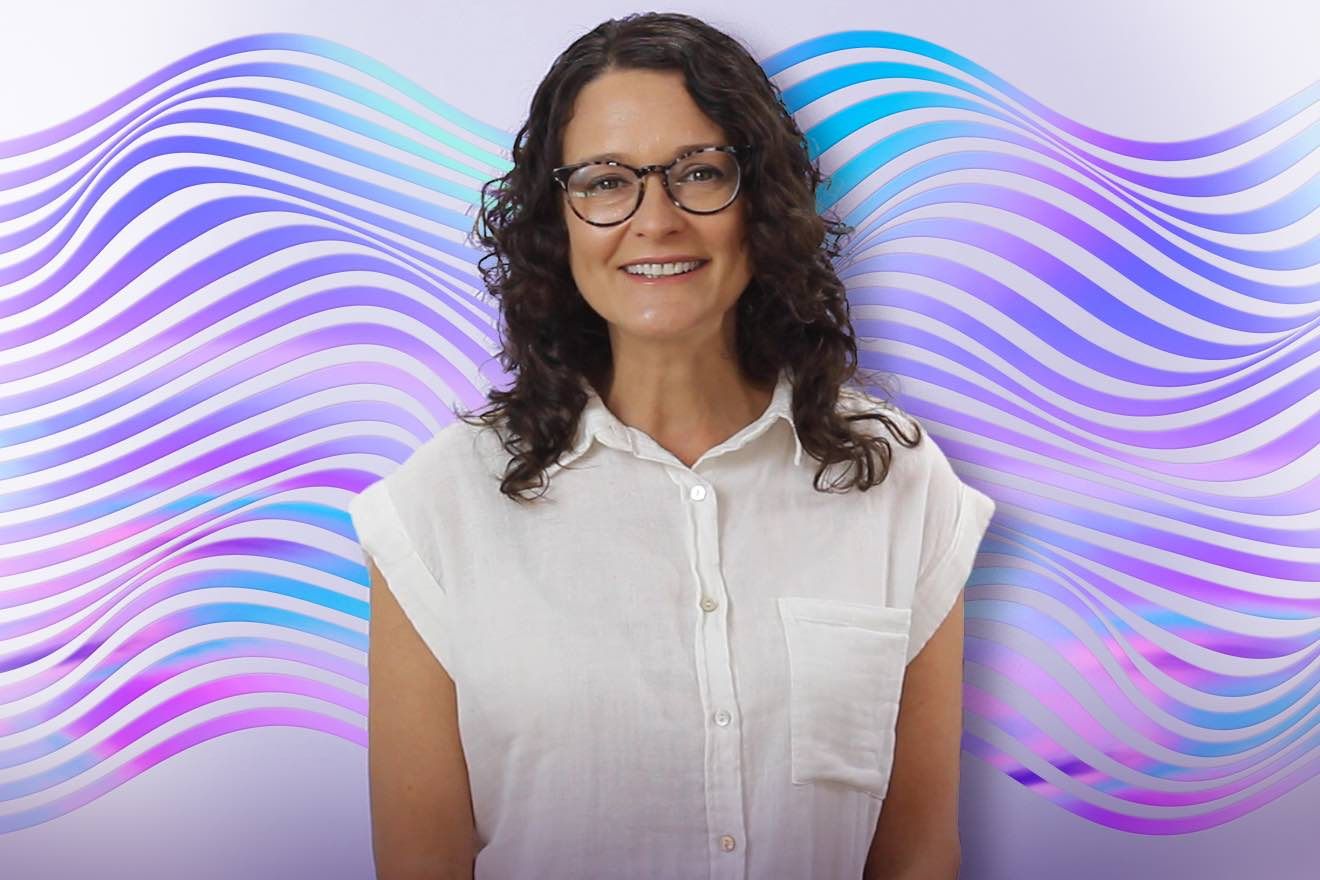Guy Borgford: I’m sitting down with Co-Founder of Psychedelic Support, Allison Feduccia, PhD to talk about psychedelics and learn about her journey into this promising and fascinating field of scientific and spiritual study. Alli, I’d like to go back to the beginning – what first drew you to science?
Allison Feduccia: I was always interested in science growing up. With a persistent interest in the natural world, particularly my own body and mind, I was very curious about all the functionality of what makes us human. And consciousness was always a big part of that as well.
Growing up in Baton Rouge, Louisiana with a Catholic upbringing there was a lot in the culture that didn’t really fit with the standards of the scientific method or could be backed up via experimentation, testing hypotheses, and reasoning, so not a lot of tangible ways of describing the world around us. On the other hand, the mystical or spiritual nature of the world is really fascinating to me and that is a bridge that I’ve found in my life with psychedelics – this concrete understanding of the mind and the body and how the medicines bind to receptors to induce some type of shift in how we experience the world. But at the same time, there’s so much that’s not explained in psychedelic experiences through the scientific method approach. So layering on the mystical or spiritual nature of psychedelics and what that means for us as human beings is infinitely fascinating.
Follow your Curiosity
Sign up to receive our free psychedelic courses, 45 page eBook, and special offers delivered to your inbox.Guy Borgford: Did you have any women role models in science or role models in your immediate circle that you set out to emulate?
Allison Feduccia: My mother was a big role model for me when I was a teenager. She was the guidance counselor there, and it was really difficult being the guidance counselor at the high school where her kids were, for understandable reasons. So she ended up getting a different position at Louisiana State University as the Director of Career Services, and this was when I was still in high school.
With her career focus, she obviously had incredible insights around picking a career that really suits your personality, your skills, and your abilities – and actually she wrote a blog for us at Psychedelic Support, entitled, “The Now, the New, and the Next for Psychedelic Careers”. That kind of guidance and framing was invaluable in helping me understand how to pick areas of study and a profession that suited my interests.
Later on, she also encouraged me to get an internship in a lab – at the time I was an undergraduate and not super clear on my path in life. I thought maybe I’d go to medical school, so I was taking a lot of biology and psychology classes, which I really liked a lot for the most part. I ended up getting an internship at the University of Texas to better understand what a graduate program is, what working in a lab means, and what a dissertation program would look like. And after that internship, I decided I wanted to go to grad school and then pursued that path. If it wouldn’t have been for my mother, I probably would’ve just stayed in Breckenridge snow skiing.
Guy Borgford: How cool that you bring up your mom as your main role model. What a gift!
Allison Feduccia: She is! And I should mention too, my mother went back to school after I finished high school to get her PhD in the area of career development and that was further inspiration to have similar educational aspirations – if she could do it at 50-something, I could do it too!
Guy Borgford: What was your first experience with psychedelics like?
Allison Feduccia: The short version is I was 15 years old and went to Sadie Hawkins dance with eight girls. We decided to drop some LSD. We didn’t really have any drug education – it was “just say no”. We were exposed to the psychedelic experience through popular culture and we thought there was more to it than what we had been told. So we dropped LSD and went to this dance. It was a great time, but then somebody offered me another hit, so I did it and we left the party. I ended up getting separated from my friends and I was in this Jeep with some other kids from high school and I started leaving my body and experiencing what I know now was ego dissolution. My body started acting out in crazy ways and eventually somebody called an ambulance and I ended up getting brought to the hospital where I later came to.
Guy Borgford: What details do you recall from the experience?
Allison Feduccia: I traveled to this place that was filled with crazy visions and experiences of past lives – my whole life and everybody else’s lives – like being sucked back and forward through time all at once. It was very frightening and confusing. And then I ended up in this very calm, peaceful place, where this Being exclaimed, “Oh, you’ve arrived, you’re here at the center of the universe. But you have to go back now – you have something to do. You have to go back to earth.” And it was like, Oh, but I don’t want to go back. So I went back very rapidly and had what I now know is a classical rebirth experience as described by the legendary psychedelic pioneer, Stan Grof, MD. Then I woke up in the hospital and I thought I had just been born and my parents were there.
Guy Borgford: So regarding the rebirth, how did that change you moving forward?
Allison Feduccia: It was this incredible spiritual epiphany. Many of my beliefs and understandings of the world collapsed like a house of cards. Things just didn’t add up. Yet at the same time, I couldn’t really talk to my parents about it because they were rightly concerned and upset that their 15 year old daughter had taken LSD.
Having a curious mind I wound up at Baton Rouge Library reading all these books trying to understand what had happened to me and concluded that I must have had a near death experience. I didn’t tell any of my friends about this experience either because they got into trouble too as my parents told their parents, so it was sort of just like this shameful experience that I bottled up for many years. But I wanted to understand how that one drop of LSD did that to my conscious awareness and how does the brain produce reality? And how can I access those experiences maybe without a drug and/or what does that mean for the human mind?
Guy Borgford: That’s something – your first psychedelic experience delivering that holy grail of entheogenic conscious awareness. And at just 15, setting the course of your life and your life’s work. That’s an incredible story.
So, as you got into graduate studies and you realized that this kind of exploration of consciousness and neurobiology was an area that you wanted to explore further, what did your family think?
Allison Feduccia: The lab I worked in at the University of Texas was an addiction focused lab, but alcohol primarily. We had some grant money to study MDMA and were doing rodent studies looking at neurochemical release after MDMA self-administration. This was in the early 2000’s and most of the research was looking at neurotoxic effects of MDMA and a lot of government funding went towards dismantling the rave culture and showing how harmful the drug was. I don’t think my parents had too much to say or think about that. They were more focused on the fact that I was in grad school.
A number of years later, I went to Peru to attend an ayahuasca retreat by myself so I felt like I had to tell my mother in case something happened. So I told her, I’m gonna go to this shamanic retreat and drink ayahuasca. And at first she was like, Oh, interesting…cool. And then she went and looked it up and the next day I got a call and she was like, you cannot go do that!
I went anyway. And it was a life-changing experience – seven ceremonies in 12 days. I called my mom right after the retreat, and I was telling her how I had these visionary experiences that deconstructed my thought patterns and helped me to see the pitfalls I was falling into to. I was able to let go of a lot of psyche baggage I wasn’t even conscious of. After witnessing the changes I made in my life following the retreat, she started doing her own research and reading a lot about it and got really interested in psychedelics.
Guy Borgford: What did the psychedelic landscape look like as you began focusing your studies there?
Allison Feduccia: The ayahuasca retreat was right before I went to NIH in 2012 to do a postdoc and while I was there at NIH, I gave a few talks about psychedelics and it was apparent just how fringe the topic was. Nobody really knew about it. A few people there knew about the work going on at Johns Hopkins, but even cannabis research hadn’t taken off in any big way. I remember giving a talk and I asked this room of about 50 researchers to raise their hands if they had heard of ayahuasca. No one in the room raised their hand except for one, and this was just 10 years ago.
Guy Borgford: Today we’re experiencing this psychedelic renaissance, and of course, you know, we made some errors back in the late sixties with all the tune in, tune out stuff. What do you think are the biggest challenges facing the psychedelic renaissance?
Allison Feduccia: Sustainability of the plants, the cultures, the people, and the lineages that have been holding this knowledge and being mindful that we don’t corporatize and colonize and then go and decimate the natural habitats where these plants grow. We’re already seeing these issues arise in the Amazon with ayahuasca, and as well as with peyote and the Bufo Alvarius Toad so I think the sustainability piece is a big challenge as more people seek this healing. We have to be very careful about the impact on the environment and native people. The other aspect of this is accessibility and the push by some to dominate the space with a medicalized approach with expensive pharmaceuticals that are only accessible to certain classes of people. I see that this could substantially limit access and knowledge about growing your own medicines and supporting the growth of community healing, consisting of people that have norms around safety and intention.
I would very much like to see all of these different frameworks be available, but I think it’s going to be a challenge as VC-backed companies are there with a lot of money to script what’s emerging as a dominant public narrative. And scripting that narrative also involves regulations and policy. So there’s now a lot of contention among groups that are decriminalizing these medicines and want to make them accessible. The question remains as to whether minimal, modest commercialization is possible versus those with a focus purely on profit that want to create certain regulations at the state and federal level to maximize their profits.
Guy Borgford: For a lot of people, the clinical therapeutic model is necessary for them to alleviate their own fear entering into these non-ordinary states of consciousness, but there are also those who are averse to that and are more nature-based in their approach. And, to your point, I think that the same goes for food and food sovereignty in that there are a small handful of companies that control consumer packaged goods and control people’s access to food.
Allison Feduccia: I think that’s a good parallel. And I would add to this, the control of information, where data that is being siphoned without people’s awareness, including very personal healthcare data or psychedelic experience related information is being harvested and sold, which I don’t think we have a good understanding of how that might negatively impact individuals or the collective or this idea of personal sovereignty over one’s own wellness. My fear is that people freely give away their information and then they’re unable to benefit from that data that’s being collected.
Guy Borgford: Very important points, yes. And data is a good segue into research – what area of psychedelic research are you most excited about?
Allison Feduccia: First of all, I’m very excited about people living better lives and enjoying overall improved wellbeing with the help of these medicines. From a tactical perspective, I’m ecstatic about the potential of neuroimaging, Trans Magnetic Stimulation, and other advanced technologies that we now have to study psychedelics. These tools are going to give us a more informed picture into how the brain works and a look at neurophysiology to better understand how different disease states or mental health conditions might occur and how psychedelics might work in the brain to help us discover potential novel pharmaceuticals or therapeutic approaches.
Your brain works through electrical impulses and chemical signals. So with drugs, we’re interacting with the chemical signaling. But it does seem like there is a great potential that we might learn how to either do chemical and electrical signaling together to create different states, or maybe we don’t even need drugs like psychedelics. And we’ll be able to understand how the electrical changes in the brain occur which we can model and induce with less side effects brought on by off-target drug effects.
Guy Borgford: What do you think the psychedelic space is going to look like in five years?
Allison Feduccia: Five years? Let me get out my crystal ball here. I can say, if you had asked me this five years ago in 2017, I would’ve never been able to predict what has happened over the past five years. In 2017, we had just finished the phase two trials at MAPS. We had the breakthrough therapy designation for MDMA but even still we weren’t able to raise the money for the phase III trials. But from 2018 onwards after the Pollan effect took hold things really took off. So five years from now, I would expect that some of these compounds will be FDA approved, likely there’ll be new state initiatives similar to Oregon and Colorado that broaden access beyond medical.
There are lots of different flavors of that coming down the pipeline and there will continue to be a lot of contentious views about how psychedelics should be rolled out in our society – and a lot of people striving to control the regulations around that.
I do foresee that MDMA and psilocybin will be available after FDA approval. There will be a lot more studies ongoing and potentially, new discoveries. We will continue to see hockey stick growth as far as publications, new molecules, patents, new companies, and new options for people.
My hope is with all that, there is room for all these different frameworks – medical and community – and that one won’t dominate the other, and that people have available access to information to find what is the best course for them, and that might change as they progress in their life or progress with psychedelic experiences.
Guy Borgford: That’s a beautiful point. It’s such a personal thing to adopt into your life. And everybody is so different and there are so many confounding variables on what their individual journey looks like. So, there needs to be a lot of options. What do you see as the biggest career opportunities for people who are looking to get into working with psychedelics?
Allison Feduccia: There’s a whole range of opportunities because this really is forming into an industry, so we need professionals of all types, right? There’s those that will be providing the medicine, that could be therapists, guides, coaches, and support roles. There are those growing the medicines or producing them in some way. There are researchers and investigators doing all these trials and studies. And there is also an entire field of law and regulation, and policy advocacy.
There are also a lot of opportunities for different types of businesses to spring up as far as delivery of care services such as retreats, clinics, healers and spiritual practitioners, so essentially, the whole gamut of fields. I think psychedelics have the potential to fuel a wide range of job and career growth. That’s what’s so fascinating about psychedelics is it’s like we’re birthing a new industry and I can’t think of any other example in my lifetime besides cannabis where that’s really happened.
Guy Borgford: We were talking earlier about your rebirth experience with psychedelics and we’re experiencing a rebirth of psychedelics themselves and with that, new, emerging areas of human growth and development. What’s one piece of advice you’d share with someone interested in working in psychedelics?
Allison Feduccia: One piece of advice I would say is move mindfully and move slowly. The pace of being able to develop relationships and have a clear North Star in focus is required for the long haul. I think what can happen is people take psychedelics and they feel very enthusiastic and excited. They want to make a big life change, whatever that means for them. And as is often the case, sometimes change needs to unfold more gradually and the integration process of taking that insight and turning it over and helping to socialize it with other people so that it’s fruitful and not coming from a place of missed intention.
Follow your Curiosity
Sign up to receive our free psychedelic courses, 45 page eBook, and special offers delivered to your inbox.Guy Borgford: That is fantastic advice and I’ve certainly heard and read it many times that we need to take time after our experience to integrate and really let it soak in and understand it from the egoic perspective about what really makes sense. Certainly we want to lead with our hearts, but our ego is here to protect us.
Allison Feduccia: And sometimes it doesn’t. Sometimes it’s the opposite. But, it’s here to protect us and help us make rational decisions as well as assess those that lead from the heart. Balance is the best approach.
Guy Borgford: I’m a big fan of balance. Thank you for sharing your balanced perspective, Alli!
Connect with Allison Feduccia, PhD on Linkedin.








